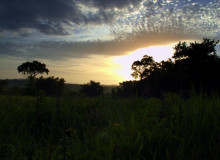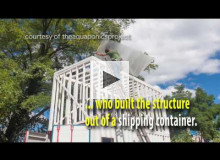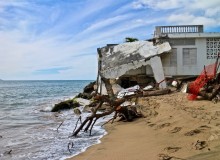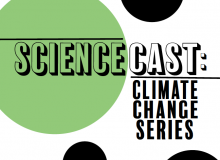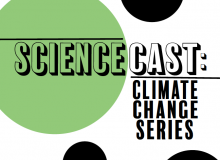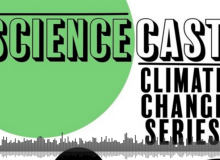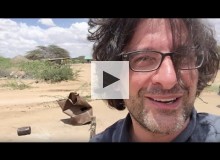Adaptation
The planet is changing. The cockroaches will be fine, but what about us? See what these PF Members are doing to adapt to the impacts of climate change.
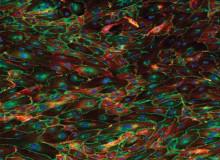
Human umbilical vein endothelial cells. (The Journal of Cell Biology/Flickr)
Northwestern University
Biological engineers are using stem cells to study the way cells interact and form unique structures on their own, hoping to one day utilize the biotechnology to create machine-like "hyper organs" and cell-based implants.
SUNY College of Environmental Science and Forestry
Ecological disturbances have long been considered destructive, but in reality, can be an essential life-giving force that maintains ecosystem health.
The George Washington University
Pittsburgh Aquaponics is a University of Pittsburgh-based project that aims to showcase the power of aquaponics in downtown Pittsburgh.
Northwestern University
As the pace of sea level rise accelerates around Puerto Rico, families are raising their furniture on milk crates and building second floors on their homes to adapt to the changes.
University of Wisconsin - Madison
In the third episode of Sciencecast, we talk with Dr. Jonathan Patz, director of the Global Health Institute at the University of Wisconsin-Madison, and explore the relationship between climate change and health issues around the world.
University of Wisconsin - Madison
In our second episode, we talk with Dr. Jim Hurley, director of the UW Aquatic Science Center and a UW-Madison professor, about the relationship between climate change and water quality in the Great Lakes.
University of Wisconsin - Madison
Introducing Sciencecast: Climate Change Series, from The Daily Cardinal at The University of Wisconsin-Madison! Twice a month, we will explore various facets of climate change through interviews with university experts.
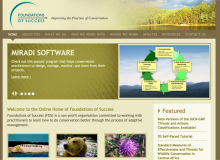
Screenshot of Foundations of Success website.
George Washington University
How do we track progress in sustainability? It’s not an easy task, but thanks to the work done by a group called Foundations of Success there is a method that is making it possible. It is called the "theory of change."
Columbia University
Francesco Fiondella, Planet Forward board member and head of communications at the Earth Institute at Columbia University, visited Kenya to learn how the community makes climate resilient choices.

